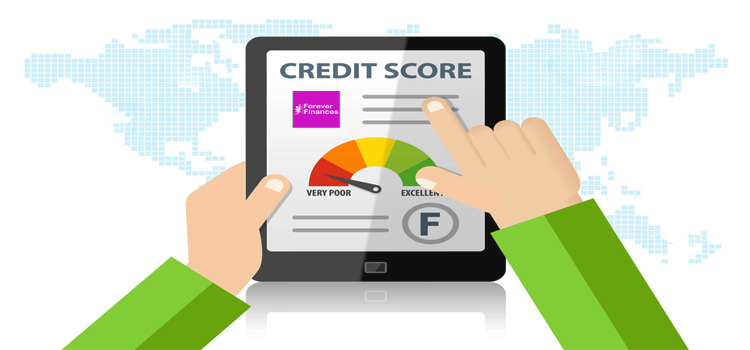If you have ever applied for a loan or tried to buy something on installments, you would have definitely come across the term ‘credit score’. It is used everywhere in the banking and finance industry today. Every time you apply for a loan or any type of credit, this is the first thing that a lender rushes to check.
When an entity is this important, you must know every minute detail about it: it’s meaning, existence, importance, features, particulars, and construction. The more you know, the better it is for you.
Let us dwell into all the essential details and characteristics related to credit score.
What Is Credit Score?
A credit score is a three-digit number that is allotted to each UK citizen, who is 18 years or elder in age. The number mostly ranges from 300 to 850, as calculated by the Experian rating method. Most lending agencies follow Experian ratings only, but the Equifax method is also used by some lenders.
This score is not just a number on paper. It reflects your life history of borrowings and repayments. Every credit card bill of yours and your diligence in clearing it is taken into account by your credit history. All of your loan applications including approvals and rejections contribute in the making of your credit rating.
Basically, all credit dealings of your past make up your credit score. Your ratings are a transparent reflection of how you have dealt with the borrowed money and how responsible you have been while repaying it. It also is a clean sheet of the interest that was levied in your borrowings and how you handled it. The reasons behind any rejection of providing credit to you are duly noted in your credit history, and impact your score negatively.
In view of what credit score indicates, it tells a lender how risky it is to lend you money. Your credit score is a mirror of your borrowing behavior and every lender makes it a point to know your credit history before approving your credit.
Why Is It Important?
People usually find themselves under circumstances where they need more money than they have. This makes them apply for a loan or to borrow credit. It is not an uncommon situation in the UK where the lending market has been seeing a surge over the last decade.
And when it comes to loan approval, the one thing that matters the most is your credit score. It can either make or break your credit approval. The characteristics reflected by your credit history and rating is what triggers or represses the urge of giving approval in a lender.
This makes credit score very important because it is a major deciding factor when it comes to getting credit from traditional sources or direct lenders. Whereas a good credit score appeals to the eyes of a lender, a bad rating declines your chances of getting an approval. However, there are loans for bad credit people offered by the direct lenders online, if not by the traditional sources.
What Is A ‘Good’ Credit Score?
The characterization of credit score into good or bad is defined in the Experian rating system of credit. While it is very difficult to know the step by a step build up of the score, it still has been defined when a person is reliable as a borrower.
The following chart indicates the nature of the credit score for every holder.

The strength of your loan application and the chances of getting approval, both decrease with decreasing numbers. Lower your credit score, lower are your chances of borrowing credit. You can get your credit score checked at multiple sources available offline and online modes. But every credit check is shown in your credit history. Keep that in check too.
How Does It Get ‘Bad’?
The building up of credit score is not very clear to the borrowers or even lenders. But there are factors that increase or decrease your score. Multiple reasons can be attributed to the falling of a credit rating, which must be taken care of if one is deciding to borrow credit in the present or future.
A- Defaulting on a loan
B- Repeatedly missing repayments of pre-decided installments
C- Delaying credit card bills
D- Multiple rejections of loan applications
E- Having a big credit balance
These are some of the major reasons that influence your credit score negatively. All of these highlight irresponsibility and unreliability on the part of the borrower. The lenders see you as a risky person to lend money to. Your future is predicted based on your past actions.
How To Build Credit Score?
Now when it has been determined that credit score is an important entity in the life of a borrower, it becomes vital to understand how a person can build it. There are some tricks and means in the market that enable you to contribute positively to increase your rating.
The best shortcut or way is to borrow money when you do not need it, and then repay it on time. Since the entire credit rating system is based on borrowing and repaying, the most sensible way to take your score higher is to just follow the system itself.
Take a bad credit loan from a direct lender, when you know you can afford to pay it back. When you are financially sound to make the repayment, the loan will not be a burden for you, and you will leave a positive mark in your credit history.
Other ways are to enroll yourself as a voter in the electoral roll and to keep your credit as low as possible.
Worsening our situation is always easier than bettering it. While damaging our credit score takes no effort at all, you have to go to some length when it comes to taking it higher.
Now To Sum Up,
When you know something is this important to you, you stay careful and take responsibility for it. When you know it can be of great help to you in the future, you do not play around and keep it safe. Your credit score is just as important.









